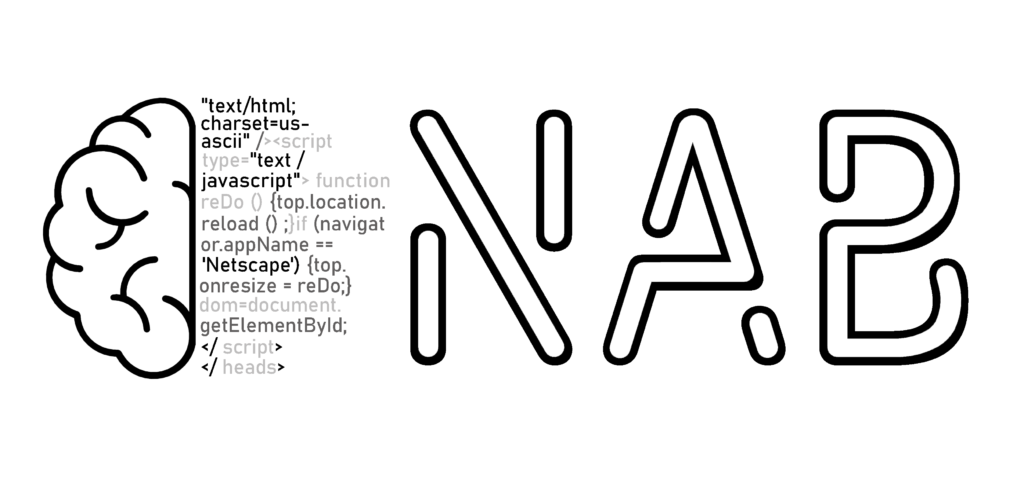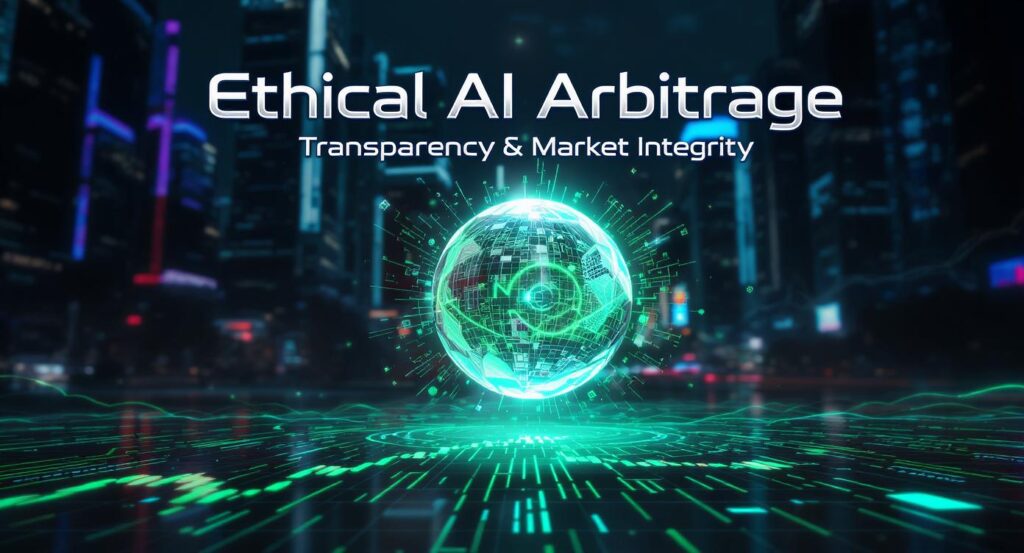As AI-driven arbitrage trading continues to make waves in financial markets, it’s crucial to consider the ethical implications that accompany the use of advanced algorithms and artificial intelligence. While AI-powered systems enable faster, more efficient arbitrage opportunities, they also raise serious questions about market fairness, manipulation, and transparency. In this article, we’ll explore the ethical concerns surrounding AI in arbitrage trading and discuss the measures that companies like NeuralArB are taking to ensure responsible, fair, and transparent trading practices.
1. What is AI-Powered Arbitrage?
Before diving into the ethical aspects, it’s important to understand what AI-powered arbitrage involves. Arbitrage is the practice of exploiting price differences of the same asset across different markets or exchanges. In AI-powered arbitrage, machine learning algorithms are used to identify, predict, and execute these trades at a pace and scale far beyond human capabilities.
For instance, NeuralArB’s AI system can detect micro-pricing inefficiencies across decentralized exchanges (DEX) and centralized exchanges (CEX) in real-time. This results in higher profits for traders, but also raises questions about the market dynamics created by algorithm-driven trading.
⚙️ NeuralArB Ethical Monitor: Flash Crash Prevention — 80% accuracy
2. The Risk of Market Manipulation
One of the primary ethical concerns around AI-powered arbitrage is its potential to manipulate markets. While arbitrage itself is generally not manipulative (as it doesn’t directly influence the market price), AI algorithms can sometimes exploit vulnerabilities in market structures that weren’t designed for high-frequency, algorithmic trading.
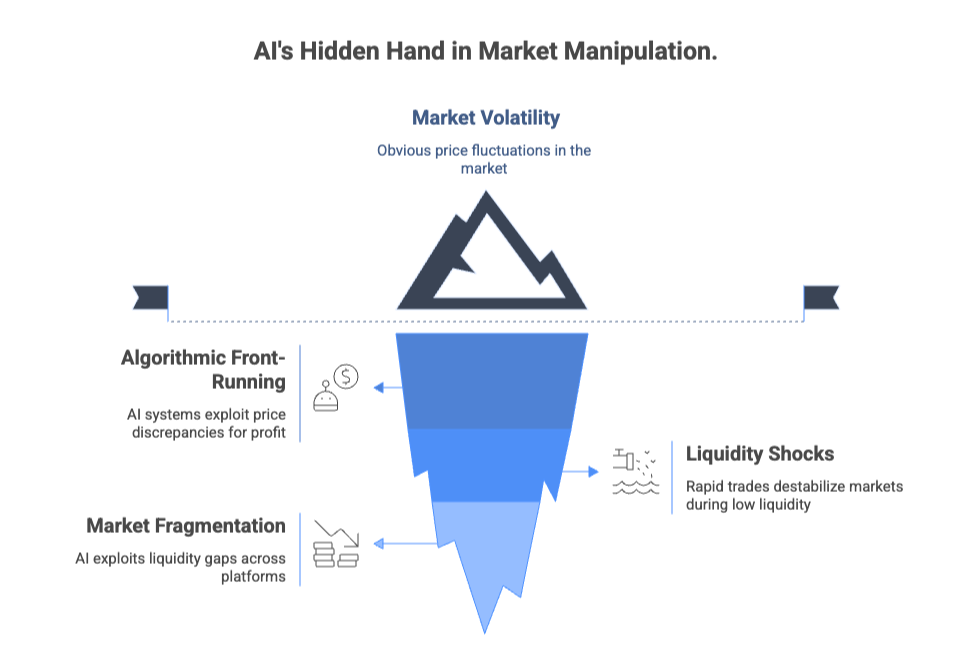
Potential Manipulative Behaviors:
- Front-Running: AI systems can take advantage of small price discrepancies by executing trades just before other market participants can act, thereby artificially moving prices to the AI’s advantage.
- Flash Crashes and Liquidity Shocks: Algorithms can cause a flash crash by executing large quantities of trades in a short time span, especially during low liquidity periods. These rapid price movements can destabilize markets and create panic among retail traders.
- Market Fragmentation: The rise of multiple exchanges and platforms may lead to fragmentation, where AI systems exploit gaps in liquidity, causing price volatility and making the market inefficient for all participants, especially smaller traders.
The Question of Fairness:
If AI algorithms are exploiting such gaps, how fair is the market for human traders who cannot compete with the speed and computational power of AI systems? This leads to concerns about whether AI is further centralizing financial power and driving smaller traders out of the market.
3. Transparency and Accountability in Algorithmic Decision-Making
Another significant ethical issue is the lack of transparency in how AI algorithms make trading decisions. Unlike human traders, AI systems work in a black-box manner, where the reasoning behind certain actions (such as executing a trade) is not easily understandable by the end-user or market participants.
This raises critical questions about accountability and responsibility in AI-powered trading systems.
Key Concerns:
- Opaque Decision-Making: Many AI algorithms, especially deep learning models, make decisions based on patterns learned from large datasets, which can be difficult to interpret. This lack of transparency can make it challenging to determine whether the system’s actions are ethical or within the confines of the market’s regulations.
- Responsibility for Misbehaving Algorithms: If an AI system causes a market disruption, who is to blame? The developer of the algorithm? The company running the AI system? The trader using the system? Without clear guidelines and transparent decision-making processes, accountability can become blurred.
- Regulatory Challenges: Regulators are struggling to keep up with the rapid pace of AI development in trading. Without a clear framework to govern algorithmic transparency, it’s difficult to ensure that market manipulation is kept in check.
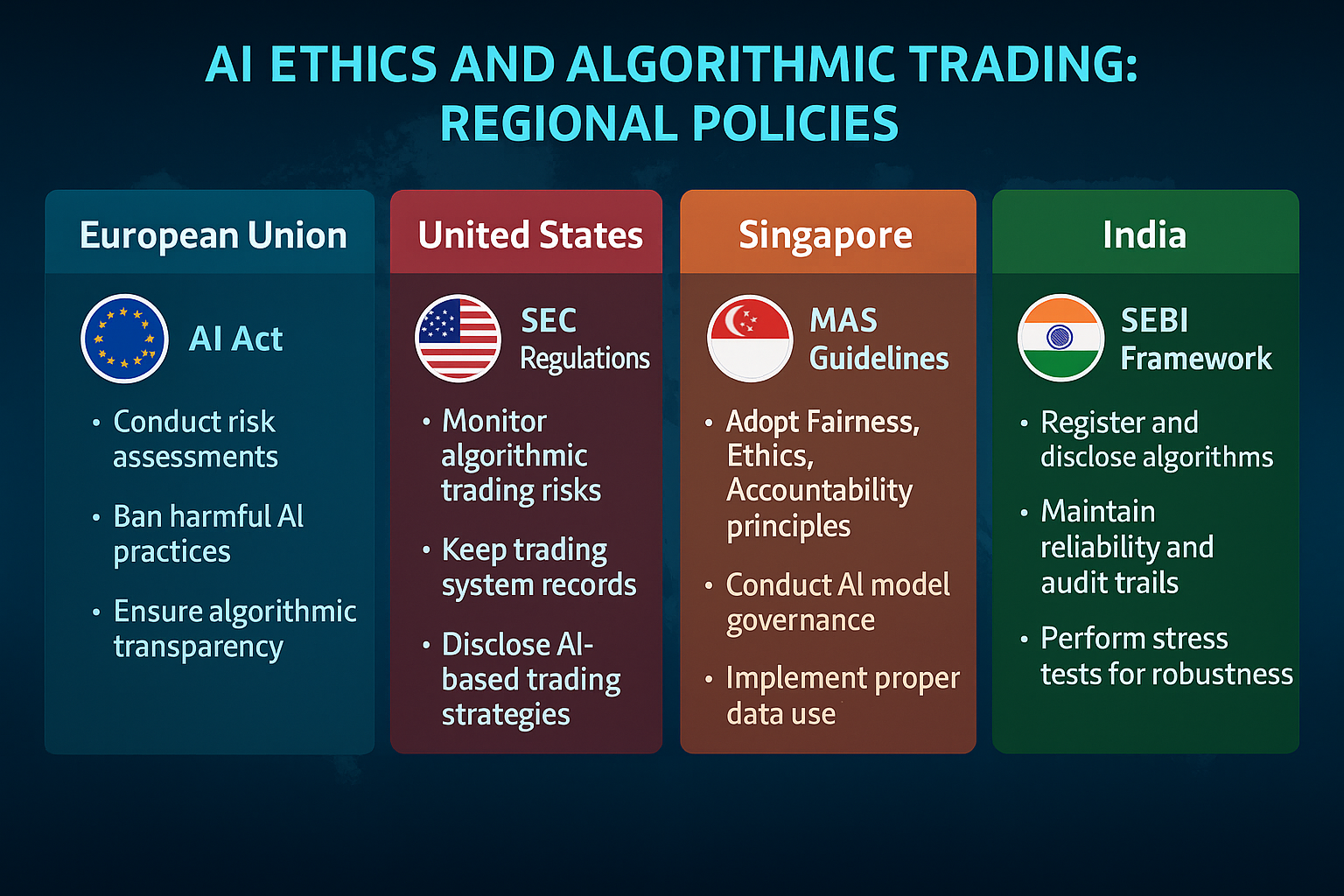
NeuralArB’s Approach to Transparency:
At NeuralArB, transparency is a top priority. The company is committed to providing explainable AI (XAI) capabilities in its arbitrage algorithms, allowing clients to understand how decisions are made. Traceability and auditability are built into the AI system to ensure that market actions are not only legal but also ethical.
4. Ethical Risk Management and AI Governance
To address these ethical concerns, AI-driven arbitrage firms must establish ethical guidelines and governance frameworks to ensure responsible usage of AI in trading. Here’s how it can be done:
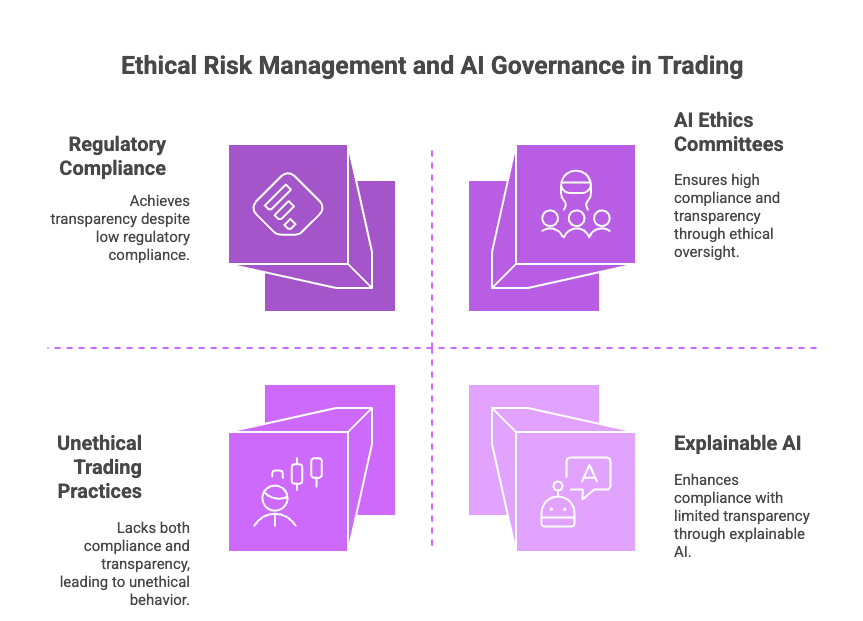
Ethical Risk Management Framework:
1. Compliance with Regulatory Standards:
Companies must ensure that their AI systems comply with existing regulations, such as the EU’s MiFID II and the U.S. SEC guidelines for algorithmic trading. These regulations require companies to adopt strict risk management protocols and provide transparency to regulators.
2. AI Ethics Committees:
Establishing dedicated AI ethics boards that assess and monitor AI models for fairness, transparency, and bias is essential. These committees should also conduct regular audits of the AI systems to ensure they are operating within ethical boundaries.
3. Fair Competition and Market Access:
AI trading platforms must ensure that they are not exploiting vulnerable market participants or creating unfair competitive advantages. This includes actively working to prevent front-running, flash crashes, and other unethical trading behaviors.
4. AI Explainability and Interpretability:
Explainable AI is a crucial part of the ethical framework. AI trading systems must be able to explain their decisions in a way that can be understood by humans, regulators, and stakeholders. This fosters trust and accountability in AI-driven trading models.
5. The Future of Ethical AI in Arbitrage
The future of AI-powered arbitrage will likely involve a combination of technological innovation and ethical governance. As AI becomes more sophisticated, its role in financial markets will grow, and the ethical considerations will evolve as well. Here’s what to expect:
1. Evolution of Ethical Standards:
Ethical standards for AI in arbitrage will continue to evolve, with new regulations emerging to address concerns around market manipulation, transparency, and fairness. Companies like NeuralArB will play a key role in helping shape these standards.
2. AI as a Force for Good:
Despite the risks, AI has the potential to be a force for good in the market. By promoting transparency, accountability, and fairness, AI can create a more efficient, liquid, and fair market for all participants. AI-powered arbitrage could democratize access to trading opportunities, allowing smaller traders to participate in markets once dominated by institutional players.
💬 Frequently Asked Questions (FAQ)
Is AI-powered arbitrage legal?
Yes. Arbitrage is a legal trading strategy. However, when using AI, traders and platforms must ensure transparency, fairness, and compliance with financial regulations to avoid unethical practices.
What are the risks of using opaque algorithms in trading?
Black-box AI models can contribute to market manipulation, front-running, or unfair advantages. These issues compromise market integrity and could result in regulatory penalties.
How can companies ensure ethical use of AI in arbitrage?
Firms should implement:
- Explainable AI (XAI) for transparency
- Algorithmic audits and internal ethics policies
- Compliance with financial regulators (e.g., SEC, MiFID II, MAS)
- Governance structures that include oversight and accountability
Who is responsible if an AI system causes financial harm?
Responsibility may fall on the developer, operator, or platform depending on the system’s deployment, level of autonomy, and failure points. Clear accountability frameworks are critical.
How does NeuralArB ensure ethical transparency in its algorithms?
NeuralArB employs explainable AI frameworks, real-time audit logs, ethical risk scoring models, and compliance filters that prevent manipulation and promote responsible algorithmic behavior.
🧠 Conclusion: Ethical AI in Arbitrage is Essential for the Future of Finance
AI-driven arbitrage represents the future of high-frequency trading. However, to ensure that AI systems do not perpetuate unethical practices like market manipulation or opacity, it’s essential that transparency, accountability, and fairness are built into the very fabric of AI trading systems.
At NeuralArB, we are committed to not only providing cutting-edge arbitrage technology but also ensuring that our systems are ethical, transparent, and compliant with global standards. By doing so, we can ensure that AI-driven arbitrage contributes to a more efficient, fair, and accessible financial ecosystem for all.
📬 Stay informed on ethical AI advancements in trading—subscribe to our newsletter for updates on AI, arbitrage strategies, and responsible trading practices. 🔗 neuralarb.com
